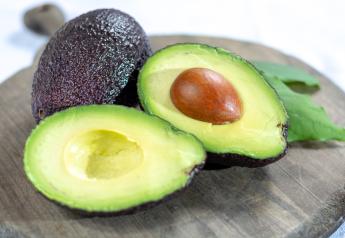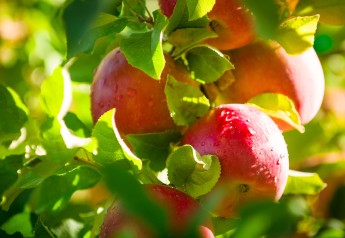Fruit, vegetable consumption is eroding, new research shows

Americans are eating produce just once a day, according to Produce for Better Health Foundation research.
Fruit and vegetable consumption has declined almost 10% since 2004, despite decades of industry and public health efforts, according to newly released “State of the Plate: America’s Fruit and Vegetable Consumption Trends,” a 2020 foundation study.
The sharpest decline was the 16% drop in vegetable consumption frequency, followed by a 15% reduction in juice intake. Data indicates the trend is worsening every year.
This underconsumption is pervasive and persistent among all age groups, foundation president and CEO Wendy Reinhardt Kapsak, a registered dietitian, said in a news release.
“A decline in fruit and vegetable eating occasions does not bode well for the future of fruit and vegetable intake and, most importantly, Americans’ health and happiness,” she said.
Every five years, the foundation analyzes fruit and vegetable consumption patterns in partnership with The NPD Group, which tracks how, when and where U.S. consumers eat fruits and vegetables.
The report’s insights help experts better understand Americans’ eating behaviors and identifies opportunities to increase consumption of fruits and vegetables in all forms: fresh, frozen, canned, dried and 100% juice.
“We were already long falling behind in our consumption goals, but much of this new data is especially striking considering we are also in the midst of a worsening obesity epidemic, as well as a global pandemic, in which consuming foods that support our immune system like fruits and vegetables is even more critical,” Reinhardt Kapsak said in the release. “Research continues to show that eating more fruits and vegetables is the single most important action people can take for better health and happiness. Yet, we’re clearly failing Americans in making this action easy and enjoyable, given the continued decline in consumption.”
Other key findings in the report include:
- Adults 50 and older are leading the decline in vegetable consumption, a particular concern as they typically eat the most vegetables;
- Older millennials are slacking, declining in fruit and vegetable eating occasions and trending higher than other age groups in not eating fruits;
- Fruit consumption is down among children; Older millennials are in their peak parenting years, and their behaviors may be affecting their families;
- Children 1-3 years old have shown a significant decline in fruit consumption.
- Intake is also down in children 4-8 years old, which is especially alarming because young children are typically among the highest fruit consumers;
- Generation Z is a promising generation of vegetable lovers. Young Gen Z consumers ages 1-14 years old are eating vegetables more frequently;
- Juice intake has declined among all age groups and to the greatest extent in young children; federal Dietary Guidelines for Americans released in December includes 100% fruit and vegetable juices as options for meeting recommendations;
- Already popular fruits have increased; While overall fruit intake remains low, people have turned more frequently to bananas, grapes, blueberries, strawberries and oranges in the past five years;
- Handy, simple veggies are increasing; Potatoes, salads, avocados, tomato sauce/paste and salsa have been increasing as go-to vegetables over the past five years; and
- One-fourth of vegetables are consumed through dining out.
“Our choices have rippling effects, not just on our own health and emotional well-being, but also on our families, communities and the environment,” Reinhardt Kapsak said in the release. “We know conscious consumption makes us and our world better, but we must simplify this call to action to realistically work within Americans’ lifestyles, across all ages and stages of life, socioeconomic levels and cultural backgrounds.”
Ease and repetition can turn consciously eating more fruits and vegetables into an unconscious or automatic behavior and, ultimately, a healthy habit.
The consumption crisis cannot be solved by educating Americans alone, so the foundation will continue to ground all efforts in its science-based KNOW-FEEL-DO behavioral framework to better help consumers act on fruit and vegetable consumption intentions with emotion-based, realistic solutions that move beyond knowledge to tap into how people feel about produce in ways that inspires more action.
The foundation will continue to reach consumers with new ideas through its Have A Plant movement, digital ecosystem and Have A Plant ambassador network.
Also, the foundation will do custom consumer behavioral research to identify trends and increase new, more sustainable fruit and vegetable eating habits. These insights, as well as innovations identified by a multi-sector coalition, will be shared by Produce for Better Health Foundation’s at the first-ever National Fruit and Vegetable Consumption Summit in 2022.







